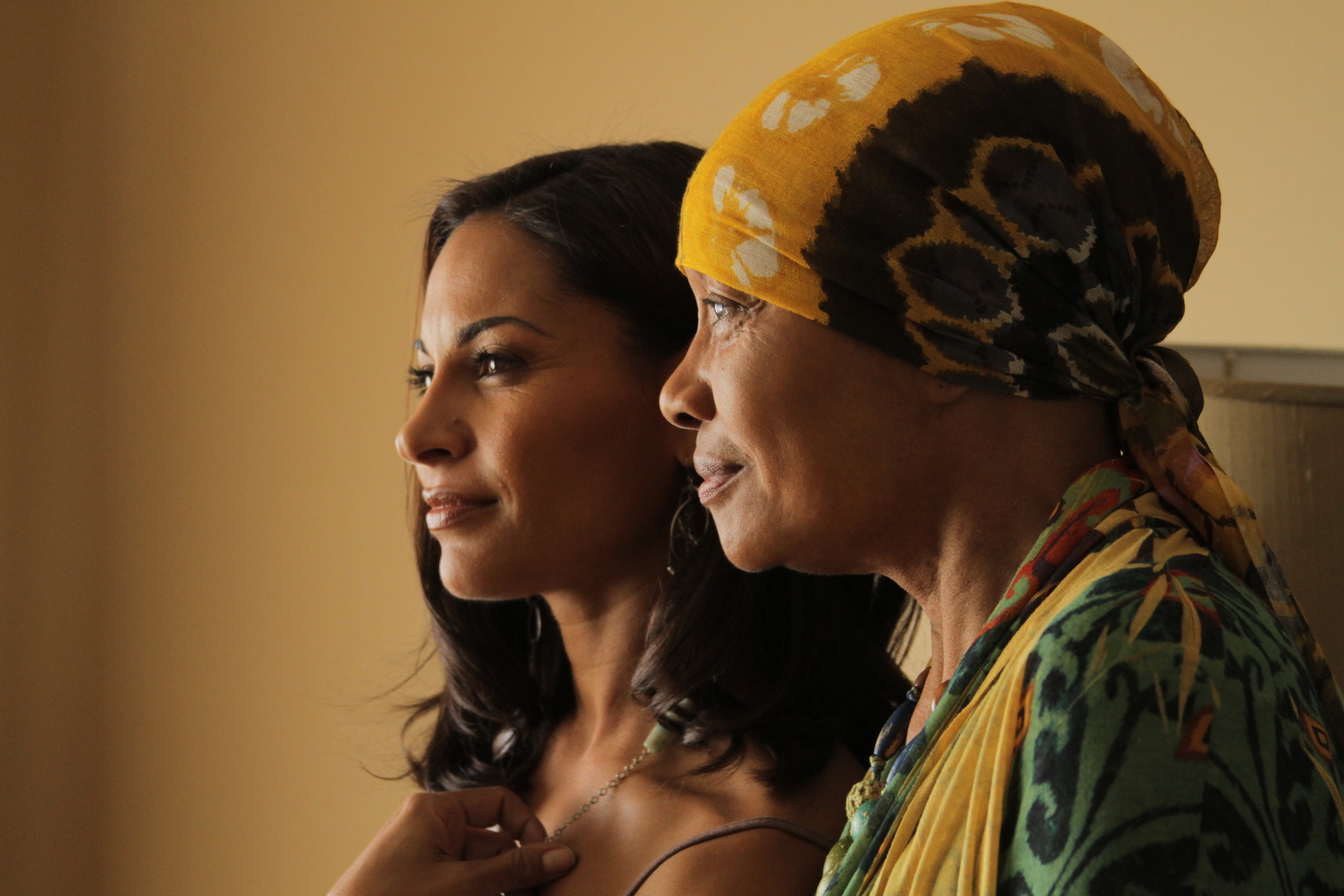By Chlotrudis Independent Film Society
Rating: 4.5 cats
Director: Ava DuVernay
Starring: Michole Briana White | Omari Hardwick | Salli Richardson-Whitfield | Tracie Thoms

Country: united_states
Year: 2011
Running time: 80
IMDB: https://www.imdb.com/title/tt1624426/reference
Jason says: “Ava DuVernay’s I WILL FOLLOW is a fairly traditional independent film of a certain type: A close, quiet examination of family ties and other relationships, the sort made with a small budget, a single location, and the desire to do something real. That can be a recipe for tedium or self-indulgence, but that’s seldom the case here, in large part because there’s just as much warmth as turmoil.
“Maye Fisher (Salli Richardson-Whitfield) has been putting this day off – it’s time to pack up her house and move. Only it’s not really her house – she’s spent the last year caring for her aunt Amanda (Beverly Todd), who has finally succumbed. Some of Amanda’s things have been donated to a music museum in Seattle (she was a session musician), but Maye hasn’t touched her room yet – she’s waiting for Amanda’s daughter Fran (Michole White), who arrives with teenage son Raven (Dijon Talton) and two other kids in tow. They clash, as usual, and Maye is also playing phone tag with her ex-boyfriend Brad (Blair Underwood).
“Although she doesn’t make a formal, stylistic point about it, DuVernay builds this picture as a series of people ostensibly playing against Salli Richardson-Whitfield’s Maye. Richardson-Whitfield is in nearly every scene, although no matter whether she’s alone or talking with someone else, Amanda is usually there too, invisible but always in the back of the characters’ minds. It’s an impressive shadow to cast, as DuVernay doesn’t show us much of the larger-than-life figure that Amanda must have been in her prime; Maye’s flashbacks are to a woman who, while likely being caught on a good day, is shrunken and weakened; it’s through the way everybody else talks about her that we feel her loss.
“As impressive as Beverly Todd is, on a certain level we’ve seen what she’s doing before – she’s the older woman who has lived a full life and is arriving at the end of it with grace, wisdom, and wit. It’s a fine and genuine example of that archetype, and the film would falter badly if any of her scenes ever rang a false note. It’s Richardson-Whitfield who is front and center, though, and she gives a nice, subtle performance. This isn’t the time for her character to burst into tears or break down, and she doesn’t; instead, we see her recognizing small but real voids in her life now that Amanda’s gone, or getting irritated at the aggravations that come with packing up to move. Those moments make her seem less of a martyr, and give credibility to later conversations about how she’s not a perfectly giving person in every aspect of her life. Despite the circumstances in which we meet her, we also see that she’s a warm, upbeat person in general; indeed, we get the idea that she’s something like Amanda was in her youth.
“(And, as an aside, it’s sort of a wonderful way for the viewpoint character to be shown – not outwardly out of the ordinary, but actually extremely capable at something that doesn’t make her famous. Usually, the life that is slowly revealed is somehow nasty or disappointing, as opposed to people being pleased to discover that someone is kind of a big deal in their chosen field.)
“If Maye is what Amanda once was, does that make Raven what Maye was as a kid? Perhaps. Even if it’s not a perfect match, the scenes where they bond give the movie a warm, tranquil center, and Dijon Talton makes Raven a true-to-life teen, initially closed off to adults but with an uncorrupted core underneath. Michole White is not so eaisly embraced as his mother; she’s there to be disliked in some scenes, pushy and selfish, but White does catch the bits that moderate things a little, so that while we may not like her, we don’t find her an unreasonable harpy. Then there’s Phalana Tiller, who has a beautiful sequence with Richardson-Whitfield toward the end, and Omari Hardwick and Blair Underwood as the men (potentially) in Maye’s life, who happily aren’t the focus of Maye’s issues but whose scenes bring both Maye’s better and lesser qualities into sharper relief.
“Those are nice moments, and welcome ones – all too often movies by/for/about women tend to focus on their relationships with men, but DuVernay keeps that off to the side; Maye is a complete person even on her own. And while DuVernay has an occasional tendency toward letting exactly what she wants to get across pour directly out of a character’s mouth, she’s often got a light touch, getting a rueful laugh early with sly framing and cutting. She parcels out Fisher family history just right, making sure we’ve got all we need to know at any given time but not having it come as exposition of things the characters would already know or creating falsely dramatic moments.
“Some might want more of those moments; family dramas are expected to have a gut-punch in them somewhere. I don’t think that would work for I Will Follow, though – a large part of its appeal is in its warmth. Sadness and rancor never outpaces affection; the audience can leave feeling good even as they feel Maye’s loss. 4 1/2 cats
“Seen 20 March 2011 in AMC Boston Common #14 (first-run)”
